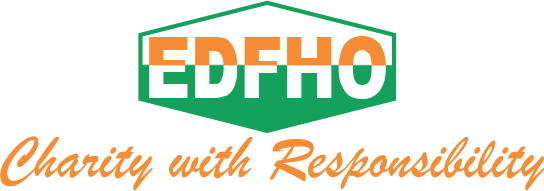Setting up Technical support for Ekiti WASH forum and Civil Society organization Engagement (October 2018 to September 2019)
Economically, the impact of water supply shortage can be seen in; the high costs of water to many low income groups when they source from water vendors, high cost of hospital bills incurred through contact with water borne diseases; the pervading physical stress in fetching water especially from a long distance and many others. An estimate by the WHO (1991) shows that the time spent each year by multitudes of women and children in fetching and carrying water is about 10 years. However, the incidences of costs incurred vary by the various socio-economic status of the populace. Despite the efforts of government over the years in water and sanitation is far meeting the need of the people, according to the joint Monitoring programme (JMP) report of 2008. Urban water coverage (the proportion of the urban population with access to improved sources of drinking water in Nigeria) decreased by 15% from 80% in 1990 to 65% in 2006. The 15% decrease in 16 years is very significant at a time that the proportion of the population living in urban areas increased from 30% to 49% within same space of time. The report also suggested that rural water coverage the proportion of the rural population with access to improved sources of drinking water in Nigeria recorded a decrease of 4% from the 34% in 1990 to 30% in 2006.
The situation continue to worsen in Nigeria and in particular Ekiti State both in urban and rural communities due to attitude of the general population as well as lack of interest and commitment at both state and local government levels. Water and sanitation is not seen as priority, and where provided lack of maintenance culture and poor hygiene behaviour at the community level makes the gain minimal.
Over the last few years Ekiti State government have been investing in water and sanitation reforms within the state with efforts in top gear to rehabilitate some of the dams within the state in partnership with European Union and the World Bank while UNICEF/RUWASSA is taking the lead in providing WASH facilities at public schools, hospitals and rural/small town communities within the state while the state ministry of public utilities and Ekiti State Water Cooperation is driving the water sector reform process with investment in human and infrastructure to deliver a transformed and effective water service within the state.
With huge resources committed to the reform process, it is important to adequately inform, carry along and connect targeted beneficiaries that this reform stand to impact less it might not be perceived as beneficial to the target audience and therefore not accept it. It was in realization of this that Ekiti State Water Corporation through the ‘Third National Urban Water Sector Reform Project’ (NUWSRP-3) engaged EDFHO as a consultant to drive the community engagement segment of the reform process with the following expected outcomes;
GOAL AND OBJECTIVES
The overall objective of the project was to improve water supply and reduce the incidence of Water and Sanitation related diseases in the project areas through increase access to safe water supply, and good Sanitations promotion and community participation in Water and Sanitation investment.
Specific objectives
-
- Understanding, work attitude, and buy –in of EKSWC, WASH stakeholders and other government officials on the ongoing reform process.
- Build CSOs capacity to effectively promote, engage, coordinate and sustain WASH reform and gains in the state.
- Change among households to promote proper hygiene and sustain WASH program.
- Perception of customers about demand and willingness to pay for public water service in Ekiti state.
The project primarily targets communities in Ado local government area, attention was however paid to strategies to reach the other 15 LGAs in designing the project components
Copyright ©2020 EDFHO Nigeria. All Rights Reserved


